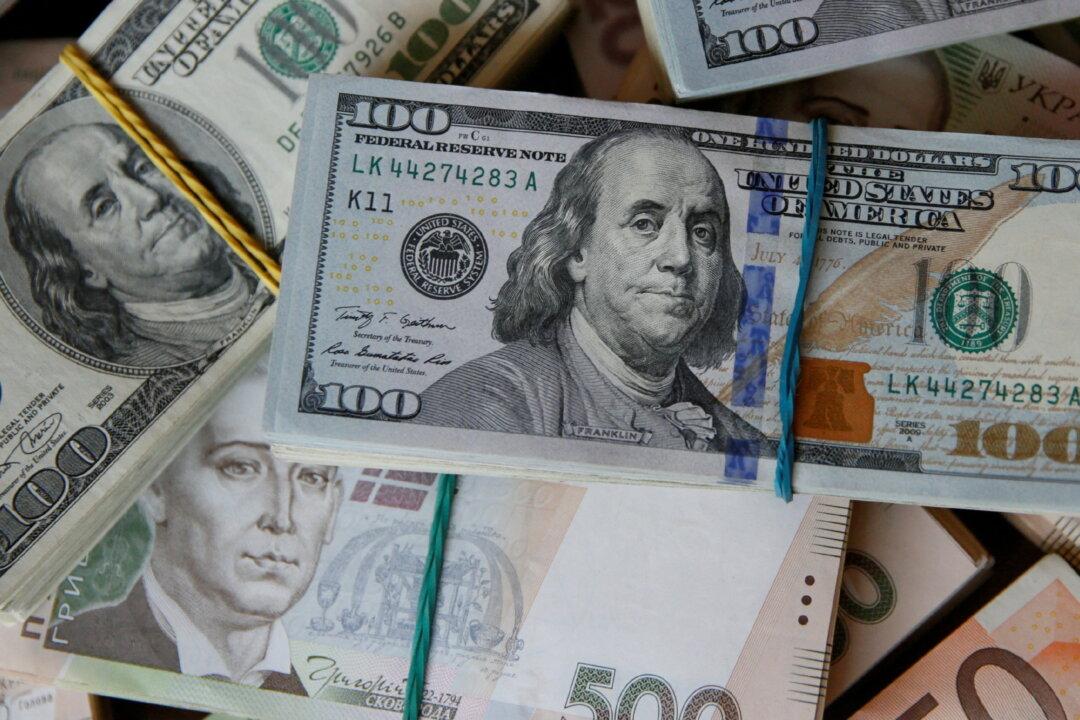LONDON/TOKYO—The dollar rose on Friday as traders weighed an ambiguous U.S. inflation report and tensions in the Middle East, where the United States and Britain launched air and sea strikes against Houthi targets in Yemen.
The U.S. dollar index, which tracks the currency against six major peers, was up 0.26 percent at 102.48 on Friday. It has risen around 1.1 percent this month as U.S. data has come in stronger than expected, after falling 2 percent in 2023.





